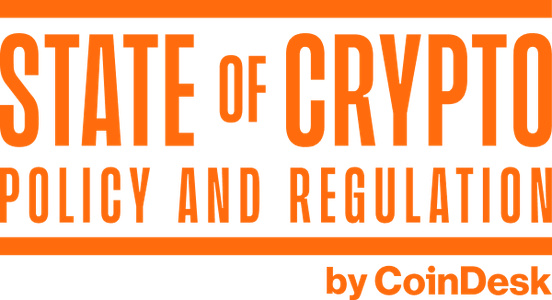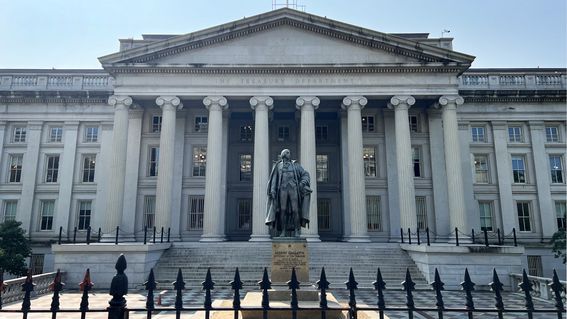
Drive the Crypto Policy Conversation Forward
October 24, 2023 • Convene • Washington D.C.Where the industry establishes the digital economy’s legal, regulatory and compliance best practices for the future.Register Now
An immediate burst of criticism from the crypto industry shows the U.S. Treasury Department’s new proposal on how to handle digital assets taxes will face a long road as it enters a months-long period of public comments and hearings.
X, the site formerly known as Twitter, quickly filled with complaints about the proposal’s scope – particularly how the tax-reporting demands may capture decentralized crypto operations that the industry would argue are impossible to bring into compliance.
Miller Whitehouse-Levine, the CEO of a decentralized finance (DeFi) lobbying group, on the social media platform that the proposal as written is “overbroad,” with provisions allowing it to capture all sorts of entities. He pointed to self-hosted, or unhosted, wallets as one example.
“While acknowledging [that self-hosted wallet users ‘effectuate’ their own transfers], the proposal still somehow attempts to find third-parties [sic] ‘responsible for effectuating transfers on behalf of’ a wallet user,” he said. “In order to square the circle, the proposal asks one to accept that ‘effectuating’ doesn’t mean effectuating.”
Another on the platform noted that wallet providers like Metamask, decentralized exchanges like Uniswap and any smart contract with a multisignature security setup might be captured under the reporting requirements. This would force these entities to develop new know-your-customer rules for their users.
In a statement, Congressman Patrick McHenry (R-N.C.), the chair of the House Financial Services Committee, said that while he was “glad to see” the effective date and certain exemptions were included, the proposed rulemaking “fails on numerous other counts.”
“Following the passage of the Infrastructure Investment and Jobs Act, numerous lawmakers of both parties made clear that any proposed rule must be narrow, tailored, and clear,” he said. “However, it fails on numerous other counts. Any additional rulemakings related to the other sections from the law must adhere to Congressional intent.”
“The crypto ecosystem is very different from that of traditional assets, so the rules must be tailored accordingly and not capture ecosystem participants that don’t have a pathway to compliance,” said Kristin Smith, CEO of the Blockchain Association, in a statement shortly after the proposal emerged.
But Smith also nodded to the other side of this coin — that the future rules will potentially give the masses of crypto investors a clear path to file their taxes, eliminating what’s been a major roadblock for easy involvement in digital assets.
“If done correctly, these rules could help provide everyday crypto users with the necessary information to accurately comply with tax laws,” Smith said.
The industry will have until October 30 to make their objections clear to the Treasury and Internal Revenue Service, followed by public hearings on November 7 and 8. The proposal’s authors included language in the lengthy document that invites ideas from the crypto sector.
One immediate bright side about the proposal’s scope was that it generally excluded crypto mining operations, which had been a worry when the 2021 infrastructure law mandated the tax rules.
UPDATE (Aug. 25, 2023, 18:01 UTC): Adds statement from Congressman McHenry.
Edited by Nikhilesh De.

